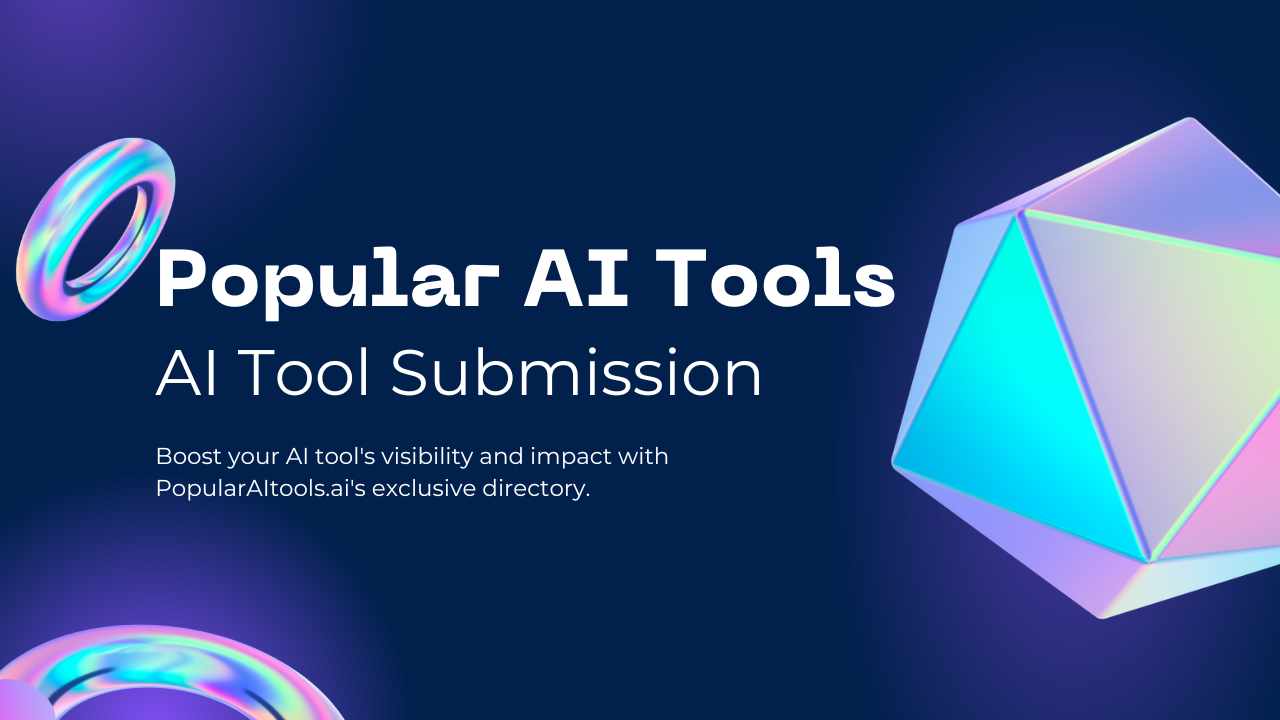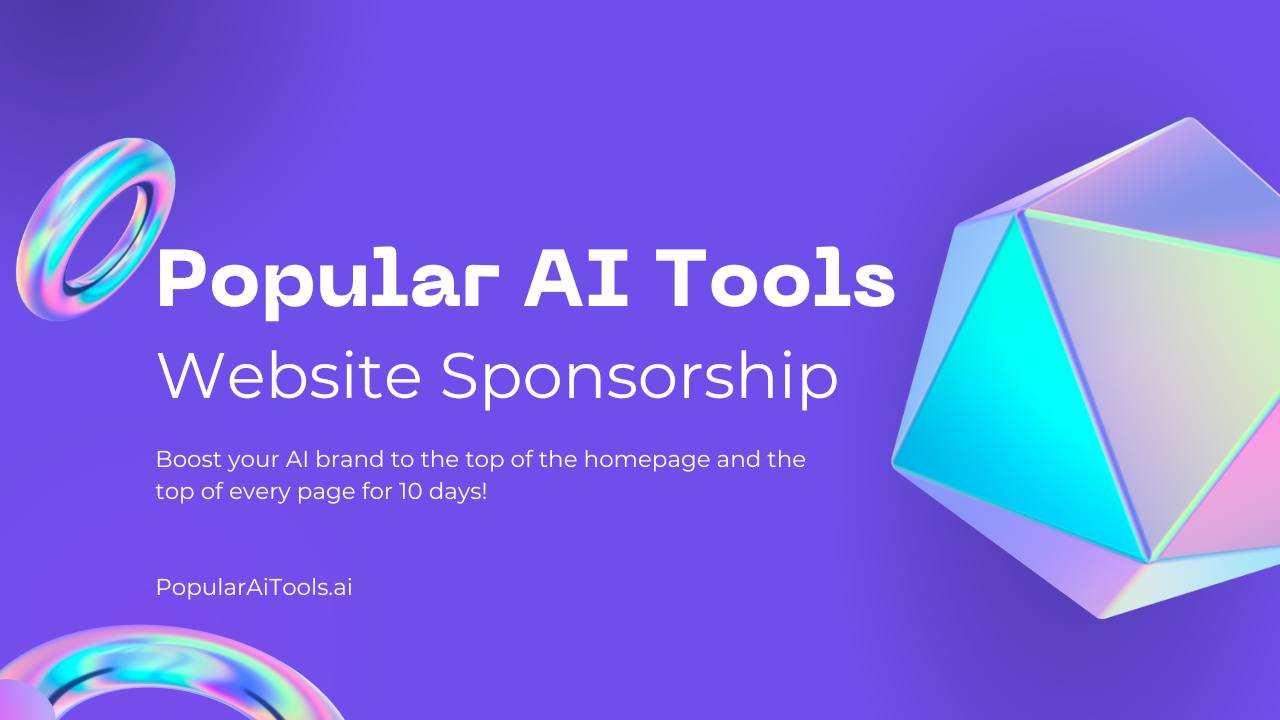Top 10 AI Tools for Educators: Enhancing Classroom Engagement and More
The realm of education is rapidly evolving with the rise of artificial intelligence (AI), presenting teachers with an array of tools designed to enhance classroom engagement and streamline various tasks. As we approach 2024, educators are turning to AI solutions to elevate the learning experience and boost efficiency. This article will delve into the top 10 AI tools for teachers, illustrating how these advanced platforms can transform traditional educational practices and help students thrive.

- Enhance your learning experience with Turbo Teacher’s AI Homework Helper.
- Benefits:
- Personalized learning tailored to your style
- Wide subject coverage from math to history
- Interactive and engaging educational support
- Real-world examples for better understanding
- Learn more
- Organize your life and projects effortlessly with Notion.
- Benefits:
- All-in-one workspace for notes, tasks, and projects
- Customizable templates for various needs
- Collaboration features for teams
- Integration with popular apps and services
- Learn more
- Record, transcribe, and search your meetings with Fireflies AI.
- Benefits:
- Automatic meeting transcription
- Searchable transcripts for easy reference
- Integration with major conferencing tools
- Collaboration and note-sharing features
- Learn more
- Improve your writing with Quill’s AI-powered editing tools.
- Benefits:
- Advanced grammar and style suggestions
- Real-time editing assistance
- Customizable writing goals
- Detailed feedback to enhance your skills
- Learn more
- Manage projects and tasks efficiently with ClickUp.
- Benefits:
- Comprehensive project management features
- Customizable workflows and views
- Integration with various tools and apps
- Collaboration and communication tools
- Learn more
- Enhance your research with Perplexity Pro’s AI capabilities.
- Benefits:
- Advanced search and summarization tools
- Real-time data analysis
- User-friendly interface
- Wide range of application areas
- Learn more
- Create content effortlessly with StealthWriter AI.
- Benefits:
- High-quality content generation
- Customizable writing styles
- Time-saving automation
- Ideal for blogs, articles, and marketing materials
- Learn more
- Streamline your text by removing redundant phrases with GPT Phrase Remover.
- Benefits:
- Simplifies and clarifies your writing
- Easy-to-use interface
- Enhances readability
- Reduces unnecessary wordiness
- Learn more
- Interact with your PDFs using Chat with PDF’s AI.
- Benefits:
- Extract and summarize information from PDFs
- Interactive Q&A with document content
- Supports various document types
- Enhances productivity and information retrieval
- Learn more
What Are the Top AI Tools for Educators in 2024?
Why Should Educators Adopt AI-Powered Tools?
Incorporating AI-powered tools into the classroom offers numerous benefits for educators. Firstly, these tools can significantly enhance personalized learning by tailoring educational content to meet individual student needs. AI-driven platforms analyze students’ strengths and weaknesses, allowing teachers to create lesson plans that address specific areas for improvement. Additionally, AI tools can save teachers valuable time by automating repetitive tasks such as grading and assessment, enabling educators to focus more on direct student interaction and instructional activities. As we witness an increasing number of educators leveraging AI, it becomes evident that these innovations are key to modernizing education and fostering a more engaging learning environment.
Best AI Tools For Teachers
AI Tools Related Articles – Entrepreneurship and Productivity
Enhancing Business Productivity with AI
- Boost Your Business Productivity with the Best AI Tools
- Top AI Tools for Effective Email Management
- 8 Essential AI Marketing Tools for Modern Businesses
- AI Innovations in Influencer Marketing

How Can the 10 Best AI Tools Help Teachers?
The 10 best AI tools for teachers in 2024 offer diverse functionalities that cater to various aspects of classroom management and student engagement. For instance, some tools assist in generating lesson plans, while others focus on creating interactive presentations and assessments. AI tools like Canva and ChatGPT not only help teachers with the design and delivery of educational content but also provide real-time feedback and insights into student performance. These tools are pivotal in helping educators maintain organization, enhance creativity, and improve overall teaching effectiveness.
What Makes These Tools Essential for Modern Classrooms?
The essential nature of AI tools in contemporary classrooms lies in their ability to improve efficiency and engagement simultaneously. AI-powered tools are designed to handle extensive data processing, making it feasible for educators to track and analyze student progress over time accurately. This leads to more informed decision-making and tailored instructional strategies. Moreover, the interactive elements provided by AI tools, such as quizzes and presentations, foster a stimulating learning environment that keeps students attentive and motivated. With the educational landscape becoming increasingly digital, incorporating AI tools is crucial for preparing students for a technologically advanced world. A list of AI tools can help educators navigate this transition.
Best AI Tools For Teachers
How Can AI Tools Help Teachers Create Engaging Lesson Plans?
Which AI Tool Is Best for Generating Lesson Plans?
When it comes to generating lesson plans, one of the most effective AI tools is the AI-generated lesson planner. This tool enables educators to customize lesson structures by inputting specific objectives and learning outcomes. By using AI to create lesson plans, teachers can ensure that their instructional content resonates with students’ interests and comprehension levels, utilizing the list of AI tools available. Furthermore, many AI lesson plan generators offer a variety of templates and resources, which can be readily adapted to fit different teaching styles and classroom settings.
Discover AI Integrations and Educational Resources
- AI Tool Categories & Integrations
- AI Courses for Enthusiasts and Professionals
- Submit a Tool to Popular AI Tools
- Advertise Your AI Solutions
Explore Featured AI Tools and Blogs
- Explore GPTs and Their Capabilities
- Featured AI Tools for Various Needs
- AI Blog for Latest News and Tips
- 9 Best AI Essay Writers of 2024
How Does Canva Assist in Creating Lesson Plans?
Canva, known for its versatile design capabilities, also serves as a powerful AI tool for teachers. It helps educators create visually appealing and organized lesson plans. Canva’s user-friendly interface and extensive library of templates enable teachers to design worksheets, infographics, and interactive presentations effortlessly. By integrating AI features, Canva can suggest design elements and layouts based on the content provided, enhancing the overall aesthetic and functionality of the lesson plans. This makes the learning material more engaging and accessible for students, thus improving their learning experiences.
Best AI Tools For Teachers
Can AI Personalize Learning for Students?
Personalized learning is one of the most significant advantages of using AI in education. AI tools for teachers can analyze each student’s learning habits and performance, providing insights that help educators tailor their instruction to meet individual needs. For example, generative AI platforms can recommend specific activities or resources that address a student’s unique challenges, which teachers can create with the right AI tools. AI personalization not only helps struggling students catch up but also offers advanced learners opportunities to explore more complex topics. By creating a dynamic and customized learning journey, AI ensures that every student receives the attention and support they need to succeed. Collaborate with other educators to let the AI refine these journeys further.
How Can AI Tools Assist With Grading and Assessment?
What AI Tools Streamline Grading Processes?
Grading can be a time-consuming task for teachers, but AI-powered tools such as OpenAI and other AI grading platforms can significantly streamline this process. These tools automate the evaluation of assignments, quizzes, and exams by using advanced algorithms capable of accurately assessing student responses. By employing AI tools for grading, educators can save time and reduce the likelihood of human error, ensuring fair and consistent evaluations. Furthermore, some AI tools provide detailed analytics and feedback for each student, helping teachers identify areas where students may need additional support.

Can AI Generate Quizzes and Assessments?
AI-generated quizzes and assessments are revolutionizing the way educators evaluate student learning. Tools like quiz generators can create customized assessments based on the specific learning objectives and standards set by the teacher, providing a list of AI tools to support targeted learning. These AI tools can generate a variety of question formats, including multiple-choice, short answer, and essay questions, and can even shuffle question order to create unique assessments for each student. This not only helps in maintaining academic integrity but also ensures that the assessments are tailored to measure the intended learning outcomes effectively.
How Can OpenAI and Other Platforms Help in Grading?
Platforms like OpenAI play a pivotal role in modernizing grading practices. Let the AI streamline these processes further. By leveraging AI algorithms, OpenAI can assess written responses, analyze text for coherence and relevance, and assign grades based on predefined criteria. These AI grading platforms also offer instant feedback, allowing students to understand their mistakes and learn from them immediately. Favorite AI tools include those that enhance learning through timely feedback. Additionally, the data collected by these AI tools can help educators track progress over time and identify patterns that may indicate broader educational trends. Right AI tools facilitate this tracking and analysis. This comprehensive approach to grading enhances the accuracy and efficiency of student evaluations, providing valuable insights for both teachers and students.

How Can AI-Powered Tools Improve Classroom Engagement and Experiences?
What AI Tools Enhance Student Interaction?
AI tools such as interactive whiteboards and educational chatbots are designed to boost student interaction in the classroom. Favorite AI tools like these also enable dynamic teaching environments. These tools provide dynamic platforms where students can engage in real-time discussions, ask questions, and receive immediate feedback. Educational chatbots, powered by AI, can hold conversations with students, answering their queries and guiding them through complex topics. By fostering an interactive learning environment, these AI tools encourage students to participate actively, thus increasing their engagement and improving their understanding of the subject matter.
Creative Applications of AI
- Develop Your Free AI App with Llama 3
- Exploring AI in Songwriting: Creative Potentials
- Amazon’s Quantum Leap in AI Technology
AI in Communication and Media
- Revolutionizing Media with the Best AI Voice Cloning Software
- Meet the Top 6 Celebrity AI Voice Generators
- Transforming Interactions: Chatbots and GPT-2
- ChatGPT’s Role in Humanizing Digital Communications
- AI’s Breakthrough in Transcription Services
How Can Teachers Use AI to Create Interactive Presentations?
Creating engaging presentations is paramount to capturing students’ attention, and AI tools are invaluable in this regard. Tools like Canva and other AI-driven presentation software help teachers design visually rich and interactive presentations, making them favorite AI tools among educators. These platforms come equipped with various templates, animations, and multimedia support, allowing educators to create presentations that cater to different learning styles. AI features like auto-layout suggestions and content enhancement further refine the presentations, making them more effective in conveying educational content. Favorite AI tools like these are excellent tools for teachers aiming for clarity in instruction. By using AI to create presentations, teachers can ensure that their material is both informative and captivating.

Can AI Resources Help in Maintaining Student Focus?
Maintaining student focus is a challenge many educators face, but AI-powered tools offer innovative solutions to this problem. For instance, AI can monitor student behavior and engagement levels through facial recognition and other sensors, providing real-time data to the teacher. This allows educators to make immediate adjustments to their teaching strategies to regain student attention. AI teaching can enhance this adaptability. Additionally, AI tools can suggest breaks, interactive activities, and varied instructional methods to keep students engaged throughout the lesson. These AI resources are essential for creating a dynamic classroom environment where students remain focused and motivated.
How Can AI Co-Pilots and Assistants Help Teachers SAVE Time?
What Features Do Education Co-Pilots Offer?
Education co-pilots, or AI assistants tailored for teaching, offer a plethora of features that help teachers save time and enhance their efficiency. These AI co-pilots can manage administrative tasks such as scheduling, attendance tracking, and communication with students and parents. Collaborate with other educators to optimize these tasks using AI. By automating these routine tasks, AI tools allow teachers to dedicate more time to instructional planning and student interaction. Moreover, education co-pilots can provide insights and recommendations based on data analysis, helping teachers make informed decisions quickly.
How Can ChatGPT Function as a Teaching Assistant?
ChatGPT, an AI developed by OpenAI, can function as an effective teaching assistant by handling various educational tasks. This AI tool can answer student questions, assist with research, and provide explanations on complex topics. ChatGPT can also help in generating lesson plans, quizzes, and assessments, making it an invaluable resource for teachers. By leveraging ChatGPT, educators can offer personalized support to each student, addressing their queries and needs in real-time. This level of assistance enhances the learning experience for students while reducing the workload for teachers.
What are Magic Write and Generative AI Tools?
Magic Write and other generative AI tools are designed to assist teachers in creating high-quality educational content quickly. Magic Write, for example, can generate text, lesson plans, and other instructional materials based on simple prompts provided by the teacher. These generative AI tools ensure that the content is coherent, relevant, and aligned with educational standards. By using generative AI, teachers can streamline the content creation process, producing engaging and informative materials without spending hours on manual writing and editing. These tools are essential for modern educators looking to enhance their teaching practices efficiently.
Q: What is the best AI tool for teachers in 2024?
A: One of the best AI tools for teachers in 2024 is Canva Magic Write. This advanced AI-powered platform helps educators create visually appealing presentations and learning materials, enhancing classroom engagement effortlessly.
Q: How can AI tools help teachers with personalized learning?
AI tools like Copilot and education copilot can help teachers with personalized learning by analyzing students’ performance data and instantly generating customized learning paths, making them excellent tools for teachers. These tools adapt to individual student’s needs, making learning more effective.
Q: Are there free AI classroom tools available for teachers?
A: Yes, many AI tools offer free versions or free plans. For example, Canva Magic Write provides a free account option, allowing teachers to create and design educational materials without any cost initially.
Q: What are some excellent AI tools for teachers looking to enhance classroom engagement?
A: Some excellent AI tools for teachers include Copilot, an AI assistant that provides teaching aid and content creation, and Canva Magic Write, which helps in creating visually stimulating presentations. These tools strive to improve both teaching efficiency and student involvement. AI teaching is an excellent tool for teachers aiming to achieve this.
Dive Into AI Tool Categories and Reviews
Q: Can AI tools generate educational content instantly?
A: Yes, AI tools like education copilot and Canva Magic Write can instantly generate educational content. These tools use advanced AI algorithms to create lesson plans, quizzes, and presentations quickly and efficiently.
Q: What are ten AI tools for teachers to consider in 2024?
A: Ten AI tools for teachers to consider in 2024 include Canva Magic Write, Copilot, Education Copilot, an AI Presentation generator, AI-powered platforms like Khan Academy’s AI tutor, Quizlet, Gradescope, DreamBox, Duolingo, and NoRedInk.
Q: How can teachers use these tools effectively in the classroom?
A: Teachers can use these tools effectively by integrating them into their lesson plans. Tools like Copilot and Education Copilot can provide real-time assistance and feedback, while Canva Magic Write can be used for creating engaging presentations. Teachers can collaborate with AI tools to enhance the overall learning experience.
Q: What benefits do AI tools bring to the classroom environment?
A: AI tools bring numerous benefits to the classroom, such as providing personalized learning experiences, saving time on grading and administrative tasks, and fostering a more interactive and engaging learning environment. AI in the classroom helps both students and teachers by streamlining and enriching the educational process.
Q: How can teachers develop AI literacy?
A: Teachers can develop AI literacy by familiarizing themselves with AI tools through free trials, online courses, and teaching with AI guides. By understanding how to use AI tools like Copilot and Canva Magic Write, teachers can better integrate these technologies into their teaching methods.
Q: What role does AI play in modern education?
A: AI plays a significant role in modern education by providing advanced tools that help teachers with personalized learning, content creation, and student assessment. The rise of AI in education allows for more efficient, effective, and engaging teaching and learning experiences.

